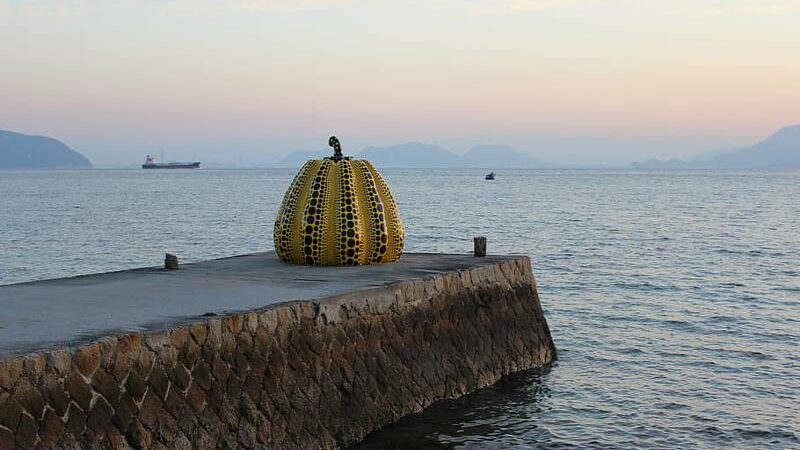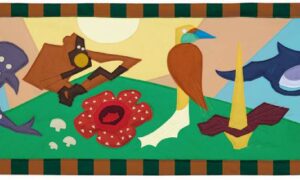Travel plans are enhanced by visiting galleries and museums, which captivate and leave a lasting impression on visitors who interact with their immersive displays. This is especially evident when travelling across Japan, where the country’s magnificent architectural creations are a reflection of the deep inventiveness of its artistic people. You can travel across breathtaking landscapes, historic traditions, and the stimulating world of avant-garde artistic expressions on a tour focused on art in Japan.
A brief overview of some of Japan’s most fascinating art exhibitions is provided here.
Planets teamLab
Galleries in Tokyo feature well-known Japanese artists, such as Takashi Murakami, who is known for his vibrant flower portraits, and the Ghibli Museum, which is a must-see for anybody who enjoys Hayao Miyazaki’s critically acclaimed films. Notably, the Tokyo attraction teamLab Planets won the honour of being named “Asia’s Leading Attraction” at the 2023 World Travel Awards. A selfie paradise, this immersive experience turns everyone into an artist. As visitors travel through surrealistic soundscapes surrounded by psychedelic landscapes, colours pour down and barriers dissolve. You can sit in a nest in outer space while being blinded by a laser light show, or you can walk through a pond of ethereal lily pads while diffracting light with your hands.
Naoshima
The “Art Island” at Naoshima in Kagawa Prefecture is home to several open-air displays that pop up on the sand, including Yayoi Kusama’s famous yellow pumpkin with black dots. Architecture projects, contemporary art museums, sculpture gardens, and galleries are all bustling with activity. To hear recordings of heartbeats from all over the world made by Christian Boltanski, go to Les Archives de Coeurs and stand in the Heart Room. The Teshima Art Museum looks like a drop of water. With openings for light, wind, and running water from rain and dormant rice terraces, it is a serene shell that harmonises nature, art, and architecture. From Claude Monet to James Turrell, there are many different items to enjoy at the Chichu Art Museum. It’s a wonderful safety for artists.
The Adachi Art Museum
The Journal of Japanese Gardening has named the Adachi Museum of Art in Shimane Prefecture as Japan’s top garden for the previous twenty years. Each stone, leaf, and blade of grass has been meticulously cared for. Each viewpoint along the meandering walk is more spectacular than the one before. The garden tea house’s long, thin windows have the appearance of hanging poetic scrolls. Knowing that you are looking at Japan’s finest horticultural show makes you want to stare at this scenery for the rest of the day.
Nebuta Museum Wa Rasse
The Nebuta Museum Wa Rasse in Aomori Prefecture has a museum of illuminated floats from the festival. Paper lanterns with exquisite designs that symbolise a thousand years of ancient Japanese mythology are put together into incredibly complicated artwork showing mythological warriors in dramatic battle scenarios. Massive floats and exhibits take you through every facet of this well-known celebration. Taiko drumming is one among the interactive activities, and there is also a “Haneto” experience where you can dance wildly to Hayashi music like a Haneto dancer. Alternatively, you can create your own digital design on a touch screen and see it come to life as part of a hands-on Nebuta experience.
Sapporo Art Museum
The Sapporo Art Museum, located in a serene natural location, actively engages in art-related research while showcasing the works of local artists. In close proximity, the Sapporo Art Park enhances the undulating greenery with sculptures that change look depending on your angle and the time of year, making for a leisurely stroll through the park that is both visually immersive and intellectually stimulating. Both the garden and the museum have temporary and permanent sculptural exhibits, as well as musical and dramatic acts, as well as educational projects where you can practise traditional Japanese crafts including block printing, weaving, and pottery.
- FCS Football Championship 2025: Updated Bracket, Full Schedule, Live Results - December 16, 2025
- Midwestern State Wins 2025 NCAA DII Men’s Soccer Championship Final - December 15, 2025
- Jerry Rice Award History: Every Winner of the FCS Freshman Award - December 13, 2025





